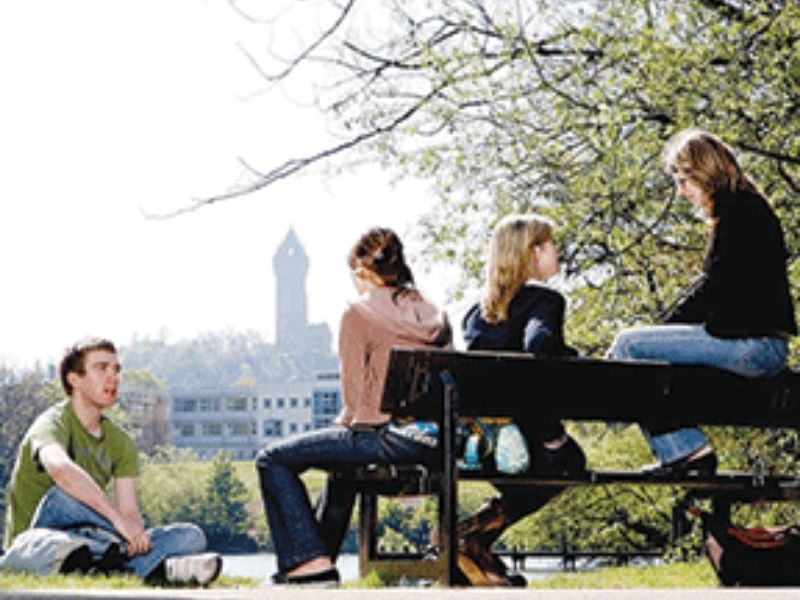University of Stirling, UK, Scotland’s first university in over four centuries has quickly established itself a national and international reputation Founded by Royal Charter in 1967, the University of Stirling is Scotland’s first new varsity in over four centuries — after the University of Edinburgh (estb. 1582). During the past 47 years it has quickly built itself a national, even international, reputation. The Times Higher Education rates Stirling #1 in Scotland and #9 in the UK in its ‘Top 100 Under 50’ league table, which ranks the world’s best 100 universities of less than 50 years vintage. Stirling is also placed among Top 12 varsities in the UK for graduate employability with 94 percent of alums in employment (or further study) within six months of graduation. Moreover, in the UK’s most recent Research Assessment Exercise (2008), 10 percent of Stirling’s research output was judged ‘world leading’ and another 75 percent as ‘internationally excellent’ and ‘internationally recognised’. “Students are at the heart of what we do and we provide one of the best all-round student experiences in the UK. In learning and teaching, we work with our student community to deliver high quality programmes that produce intellectually able graduates who are highly sought after by employers. We are ambitious for our students, and our flexible learning opportunities enable them to explore and discover new subjects and interests,” says Prof. Gerry McCormac, principal and vice chancellor of the university. Set in the eponymous town in Scotland, Stirling U’s seven academic schools — arts and humanities, applied social science, education, management, natural sciences, sports, nursing, midwifery and health, and the graduate school — offer over 200 degree combinations to 11,000 students. Stirling. Sited in the heart of Scotland, Stirling (pop. 40,000) hosts a fascinating mix of the old and new with historic monuments and castles coexisting with shops, pubs, and cafes. Ten minutes walking distance from campus is the Wallace Monument, erected in memory of the life and achievements of one of Scotland’s most venerated heroes, William (‘Braveheart’) Wallace. Other attractions include the Stirling Castle, built high on a crag guarding the lowest crossing point on the River Forth, and now a popular venue for concerts, and the Bannockburn Heritage Centre, which commemorates the victory of Robert the Bruce over the English forces led by King Edward II in 1314. Nestled where the Scottish highlands and lowlands meet, Stirling has scenic mountains, lochs and shores, perfect for outdoor activities — walking, canoeing, mountain biking and sailing. Moreover, the bright lights of Edinburgh and Glasgow are less than an hour away by train or bus. Edinburgh is Scotland’s capital and has a number of famous tourist attractions, including Edinburgh Castle, Holyrood Palace, the Royal Mile and the Royal Botanic Gardens. Glasgow (pop. 590,000) is Scotland’s next largest city with an abundance of art galleries, shops, restaurants and cafes. The weather in Scotland changes quickly — there can be rain and sunshine within an hour. Summer temperatures range from 18-25o C. But in winter, temperatures can…
University of Stirling, UK
